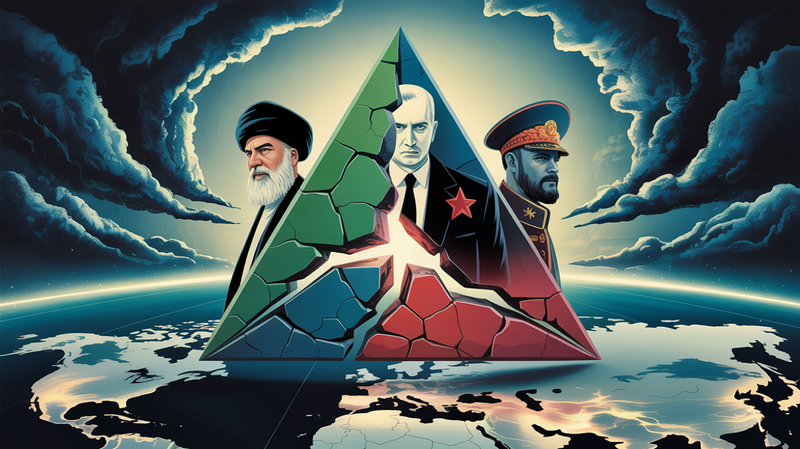Navigating the Crossroads: Germany's Future in a Transatlantic Shift
In recent times, the transatlantic relationship between Europe and America has experienced noticeable strains, with political ideologies and national interests increasingly diverging. This shifting geopolitical landscape raises pressing questions about the future of European nations, particularly Germany. Maximilian Krah, a prominent figure in the German political arena, offers valuable insights

In recent times, the transatlantic relationship between Europe and America has experienced noticeable strains, with political ideologies and national interests increasingly diverging. This shifting geopolitical landscape raises pressing questions about the future of European nations, particularly Germany. Maximilian Krah, a prominent figure in the German political arena, offers valuable insights that shed light on Germany's path forward in this new era.
Maximilian Krah, at 46, has solidified his position within the Alternative für Deutschland (AfD) party, taking on a crucial role in its national leadership and representing the party in the European Union parliament. His recent nomination as the party’s lead candidate for the upcoming E.U. parliamentary elections underscores his rising influence. Krah is also the author of "Politik von rechts. Ein Manifest" (Politics From the Right: A Manifesto), published in 2023, where he delves into the core tenets of right-wing politics, offering a nuanced perspective that goes beyond conventional definitions.
Krah begins his manifesto by drawing a line between the political Right and other terms like "conservative" or "libertarian." He defines the Right as a political ideology that strives to live in harmony with both the empirical and metaphysical aspects of nature. This, he argues, is a clear departure from 19th-century conservatism and liberalism. Krah emphasizes the importance of embracing identity and the natural order, positioning the Right as identitarian in its core beliefs.
The manifesto also addresses the contentious issue of exclusion, particularly in relation to immigration policies. Krah is quick to refute claims that the AfD's stance on immigration is a resurgence of National Socialism. He highlights the necessity of appreciating and preserving differences between cultures and nations, viewing diversity as a source of strength rather than a threat.
On the international stage, Krah discusses Germany's sovereignty, or rather, the spectrum of sovereignty. He critically examines Germany's dependency on external powers, particularly the United States, citing recent geopolitical events as evidence of this vulnerability. Krah calls for a reevaluation of Germany's position on the global stage, advocating for a balance between autonomy and collaboration.
The conversation then shifts to the European Union and Germany's role within it. Krah does not endorse a departure from the E.U., recognizing the importance of a united Europe in the face of a multipolar world. He envisions a Europe that is internally diverse yet externally united, capable of holding its own amidst global superpowers.
Lastly, Krah touches on domestic policies, particularly the AfD's stance on social welfare and immigration. He introduces the concept of "solidarity patriotism," a model that seeks to balance social support and immigration policies, ensuring that the benefits of the welfare state are preserved for the German populace.
In summary, Maximilian Krah's perspectives offer a compelling glimpse into the potential future of Germany and Europe at large. His manifesto challenges readers to think critically about the balance between national identity, sovereignty, and global cooperation. As Europe navigates these uncertain waters, the insights provided by Krah will undoubtedly play a crucial role in shaping the discourse and policies of the future.




